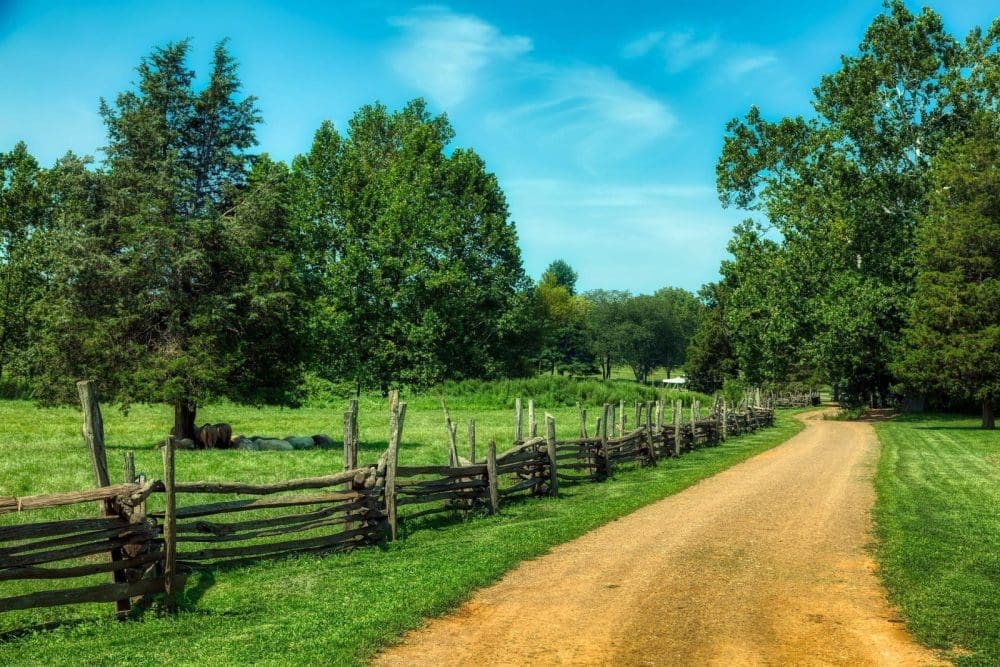There is no scarcity of NJ farms—we are called the Garden State after all. While it’s no surprise to some, this tidbit of information still seems to surprise both outsiders and New Jerseyans alike. There are reasons for the State’s abundant farmlands: The most obvious being the population in New Jersey is heavily skewed toward the metropolitan areas. Densely populated towns outside of NYC and Philadelphia account for much of the state’s population, while the center is a less concentrated sprawl of suburbs and small municipalities.
And while NJ has its strengths, it does not possess full immunity to its vulnerabilities. New Jersey farmland—something that should have full protection from the repercussions of modernization—was under constant attack for nearly 40 years before the tides turned.
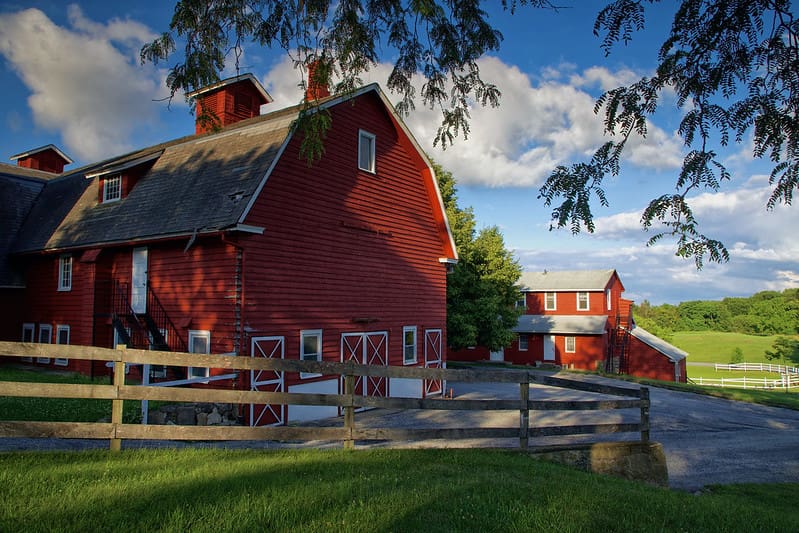
It begs several questions: How could we let the source of our food face minimization? How could we let so many jobs disintegrate into thin air? And most importantly, can we come back from 40 years of farmland lost?
What Is Suburban Sprawl?
Suburban sprawl, sometimes more simply known as “sprawl,” is a term used to describe the spread of suburbs into rural lands during the popularization of single family homes in the 20th century. With cars becoming more common, citizens moved further outside of city centers.
This seems like a net positive, but is a car-centric society built around single-family homes really viable? In addition to taking up more space that we don’t have, centering city planning around single family zoning prices out low-income families—expediting the wealth disparity that American individualism has become so obsessed with. It kills agriculture and further divides our communities.
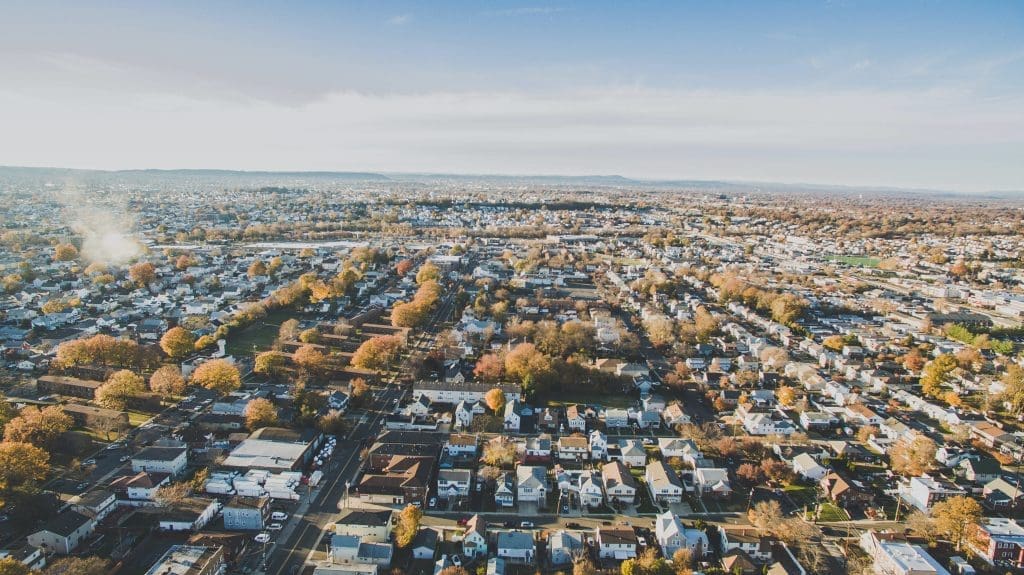
The Consequence of Sprawl
It is not uncommon to find multiple-acre lots with a single-family living on it nowadays, even in the most densely populated state in the nation. However, in a state as small as ours by land mass, this was almost detrimental to the continuing development of our farmland. Without protections, these farmers risked losing their livelihoods. In turn, New Jerseyans as a whole, suffered.
The expansion of suburbs into our NJ farms also increased the need for cars—thus driving the amount of cars upward. Many single family homes have two, sometimes three, cars, which is a far cry from Jersey City’s impressive one car per every four residents. More automobiles directly translates to heightened air pollution. Heightened air pollution directly translates to a worse environment and an exasperated climate crisis.
This is not to say that owning a car is bad—I myself drive a car daily—but it is to say that we should not build our infrastructural systems around it. We should instead fight for safer, better and more accessible public transportation throughout the entire state.
A study conducted by Rutgers and Rowan Universities in 2010 showed that even with population increase down, NJ residents were still sprawling into newly developed houses that occupy what was once lush farmland.
From 2002 to 2007, the rate of land development in NJ outpaced population growth 5:1. If continued at this rate, the Garden State will be a shell of what it once was agriculturally.
According to the Census of Agriculture, NJ farmland acreage declined by almost a third from 1978 to 2012. That is a drop from over one million acres of farmland, to just over 700 thousand. This decline directly lines up with NJ’s sprawl into many of our agricultural sanctuaries. When graphed, this constant drop looks bleak and continuing development was seemingly going to nail the coffin of what once was an alive farming community in the aptly named Garden State.
The Turn
Then, 2017 happened. For the first time in almost 40 years, the Census of Agriculture showed that farmland was increasing, and NJ farms were growing. This can be attributed to several factors. One being the growing practice of what’s known as hobby farming— small farm production not used as a primary source of income. However, what is keeping the farmland growing in NJ is our production value.
New Jersey stands today as one of the nation’s top producers of blueberries and eggplant, among other things. This is an impressive feat when taking into account our state’s small size. What is even more extraordinary is this performance against a growing tide of decreasing farmland. To persevere through this is remarkable and it is equally as important to the environment that surrounds us.
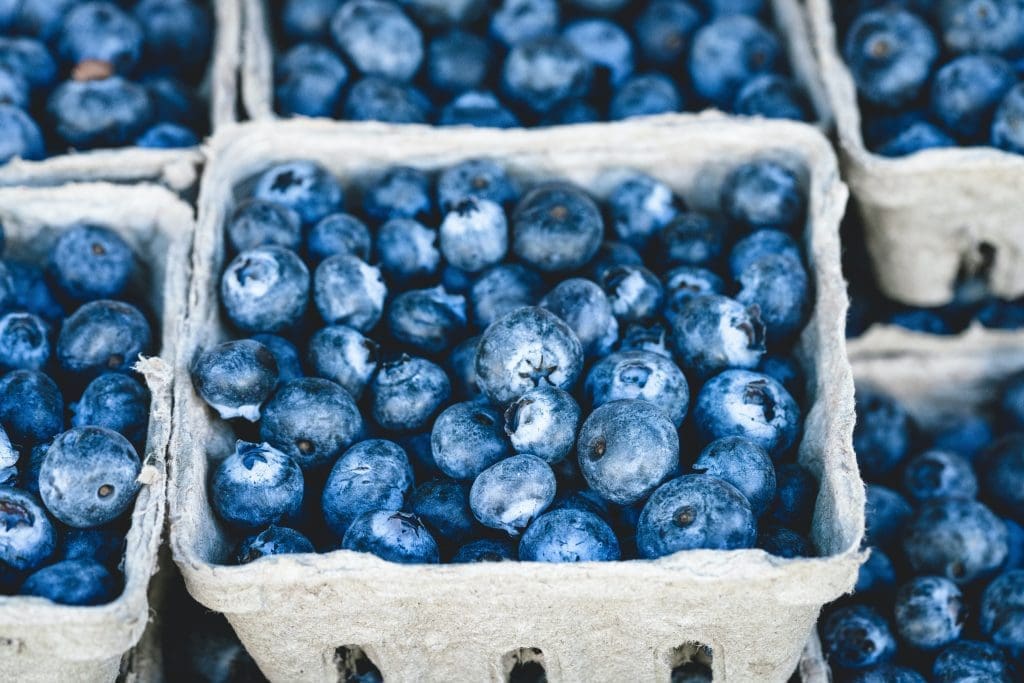
Growing columns of suburbs decimated 300,000 acres of farmland in the last 40 years. This creates multiple problems: Less produce and more importing being one of the main ones. With less crops being grown, NJ residents have their hands forced to buy products from out-of-state, or even out-of-country. This is money out of our fellow residents’ pockets, and it is a sure fire way to accelerate the extermination of farms across the state.
From the 1970s to the 2007 housing crisis, suburban sprawl dug deeper into the rural lands of NJ. Suddenly, large single family homes were popping up on fields that once sported cows or rows of crops. Agricultural lucrativity was traded for mortgages, and as a result, we all suffered the consequences.
The good news is this: New Jersey saw an increase in farmland between 2012 and 2017, and again in 2022. In 2022 alone, the State Agriculture Development Committee preserved 6,000 more acres of farmland across 64 farms according to a report released by the National Agriculture Statistics Service. That means that, to date, 248,009 acres on 2,813 NJ farms across 185 municipalities have been preserved for good. This number is notable as it is approaches 300,000—the amount of farmland lost in NJ before the turn. The full data of the 2022 Census of Agriculture will be released in Spring 2024.
Laws and Loopholes
The New Jersey Farmland Assessment Act of 1964 allows for farmland to be taxed at its productivity value and not at its landmass value. Because farms often span several acres, they would be of much higher value ideologically when used for land development. This tax break is used to incentivize farmers to keep their land for agricultural purposes and has worked wonders in regard to keeping farmers in the trade.
However, as with any financial law, there are loopholes. “Fake farmers” are people who own small lots of land (minimum 5 acres to qualify) and use it for tax breaks. They can use their land to sell the minimum of agricultural supplies to receive tax relief.
This can also be seen with higher-profile individuals. The former President of the United States, Donald Trump, takes advantage of this tax break today in NJ. Trump’s Bedminster golf course, which will host an LIV golf tournament in August 2023, is actually listed on financial records as Lamington Farm Club, LLC.

The 504 acres of land has 184 of its acres listed as farmland for growing hay and occasionally housing goats. While the other 320 acres are used to host the elite in golf matches. According to Business Insider, those goats scored Trump a rather light 700-dollar property tax bill for the “farm” section of his golf course in 2020— 200 thousand less than valued and less than you or I pay for our NJ homes by a wide margin.
Bruce Springsteen owns a mansion that sits on a Colts Neck horse farm. The horse farm is in addition to more than 200 acres of land owned by The Boss in the rural town. The farm portion of his properties pays less than five thousand dollars per year in property taxes, according to Rock NYC.
These fake farms are just two examples of how individuals can reap benefits meant for farmers without contributing a farmer’s production back to society. This is similar to suburban sprawl in terms of environmental damage, but it differs in that it does not produce anything of value as a home would. At least a cluster of suburban neighborhoods can house a decent amount of people.
Still, even with fake farmers learning how to play the system, farmland remains open across much of the state thanks to the law. The Farmland Assessment Act has its vulnerabilities, but without it we might not have any farmland left at all—that’s important.
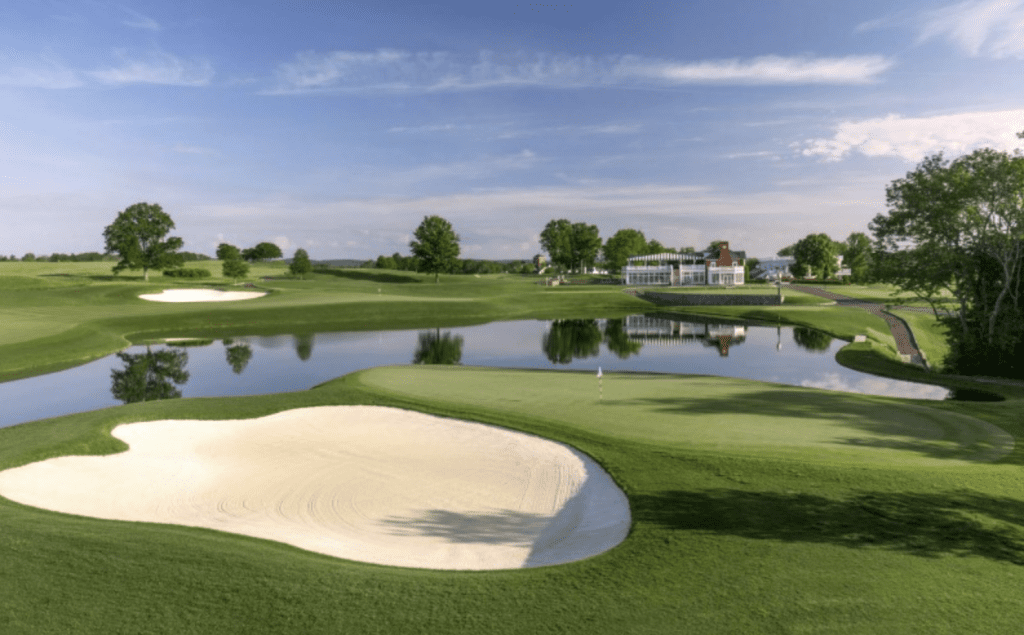
More Laws
In 1983, the Farmland Preservation Program was passed, ensuring that New Jersey would take initiative on preserving our agriculture.
The program allows farmers to sell the development rights for their land and continue to farm on it. For example, if a farmer sells their development easements, they are selling the rights to develop the land for anything other than agriculture. This means that in the future, if someone else buys the land, the right to develop it into anything other than farmland ceases to exist.
The program also provides farmers with a simple way to sell their land outright. The State Agriculture Development Committee (SADC) can buy the land at market value and then auction it off to a private owner. However, in the auction are agricultural deed restrictions that ensure its preservation permanently.
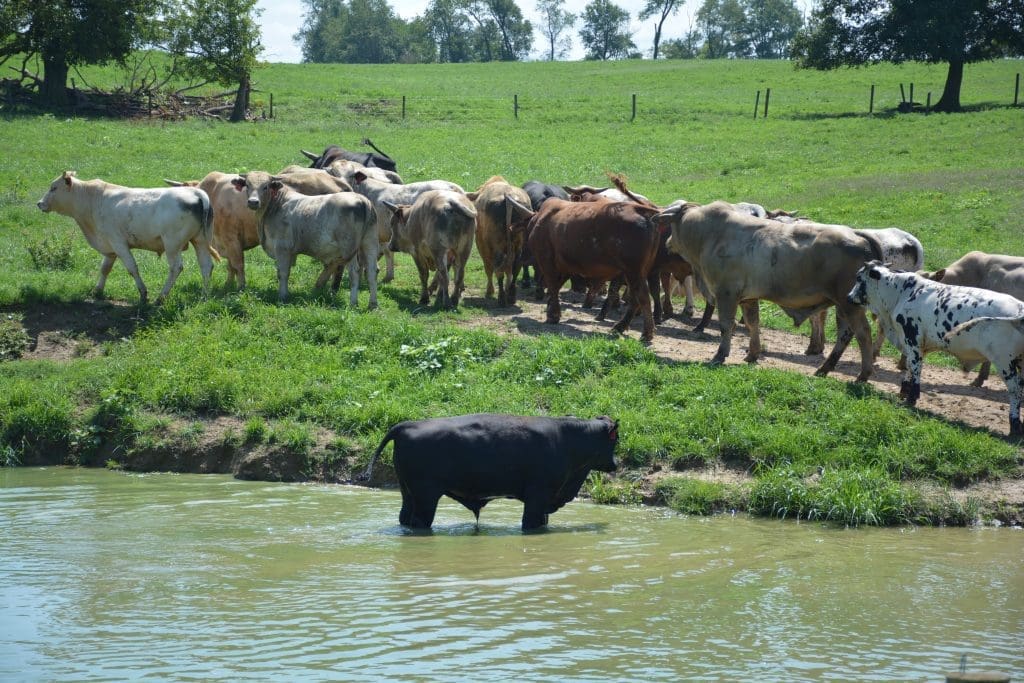
This program has caused a third of our farmland to now be under easement— unable to be developed into homes, corporations or buildings.
Because New Jersey is so densely populated, it has faced developmental pressure for decades. Farmland preservation not only assures that our agriculture remains unharmed, but it also puts more focus into building our already developed areas into more efficient means. Effective city planning and smart growth development is becoming a crucial step within those efforts, and this can be seen through the infrastructural advancements in cities like Hoboken and Jersey City over the last 15 years.
In Stores
Until the last half-decade, it was rare to find NJ produce while shopping anywhere other than a farm stand or market. Now, NJ produce pops up in most grocery stores within the state. The summer fills grocery store shelves with sweet corn and tomatoes. Blueberries from Hammonton and peaches from Newton are widely available to purchase, too. Our summer’s best tomatoes are canned and sold in the winter for pasta and pizzas alike. A dedicated collaboration of farmers is working tirelessly to emphasize the importance of our farmland. We may be biased, but produce from New Jersey just tastes better.
And it’s not just fruits and vegetables you will find. New Jersey has its fair share of flower farms, too.

Jersey Fresh is a logo developed by the New Jersey Department of Agriculture and it can be found on an array of in-state grown produce. It is a guarantee that that product was planted, grown, harvested and distributed right here in New Jersey. According to the department, there are 5 reasons why someone should look for the Jersey Fresh label when shopping:
- Locally grown food tastes better
When a product is harvested locally, it also increases the chances that it was picked more recently than imported goods were. Fresher produce has a superior flavor than produce that is made to travel.
- Local produce is better for you
Locally grown food that is purchased shortly following its harvest retains nutrients better than it would had it sat for a while.
- Eating local is better for the environment
Negating the need to transport food long distances reduces carbon emissions and pollution. Our air quality thrives when food is sourced local and in abundance.
- Local food supports local farms and families
As simple as it gets. Eating local is the best way to support family-owned farms. This empowerment keeps families running the farm and not corporations.
- Local food preserves open space
Open farm lands can survive as long as they are financially effective. If a farm cannot make money, it opens the door for real estate investors to swoop in. Buying local is a direct way to preserve the agricultural landscape of NJ.
The Future
The average age of a New Jersey farmer is nearly 60 years old. It seems the younger generations want nothing to do with the practice. This means a focus has to be placed on alluring younger people to the profession.
Organizations like the New Jersey Farmers Cooperative work toward providing our communities with opportunities for agriculture, education, economic development and historic preservation. Their mission is to preserve the farmland in our state and one way to do that is to preserve the historical homes in NJ. This reduces the need to develop new homes—which can take up land that is used for agriculture. Additionally, the cooperative provides stability to the people who grow our food. Simply put, farmers feed us and it is only fair that they are provided with the opportunities to prosper. Happy and healthy farmers are crucial to a well-fed society.
Through the power of social media, Gen Z has taken a particular interest in environmentalism and locally sourcing food. We see constant news and media about the impending climate disaster, with younger generations being at the forefront of both the effects of it and the activism surrounding it. The hope now is that even a fraction of them take the interest a step further into their working life.
@njdigest This farm in Fredon, NJ brings something new to the table. Link in bio to find out more! #newjersey #nj #farmlife #icecream #newjerseycheck #njeats #food #dessert #eeeats ♬ Moment In The Sun – Sunflower Bean
With more and more New Jersey restaurants focusing on sourcing food directly in state, it is a better time than any for farming to take off. Today, plenty of NJ restaurants and chefs focus heavily on local produce, utilizing what’s in season and grown right here in the Garden State.
With the advancement of technology and the vast availability of information, farming in NJ has never been in a better spot for continued growth. More importantly, protecting farms is essential to preserving the beauty of the Garden State.
What Can You Do to Help?
It is rather easy to feel powerless in the grand scheme of things. But, it is important to remember that you do possess the power to change things for the better:
Support the New Jersey Farmers Cooperative here.
Locate stores in your area that sell Jersey Fresh.
Contact your Senators about supporting Jersey agriculture and smart growth development here and here.
Find your Representatives and beseech them to support the same.


